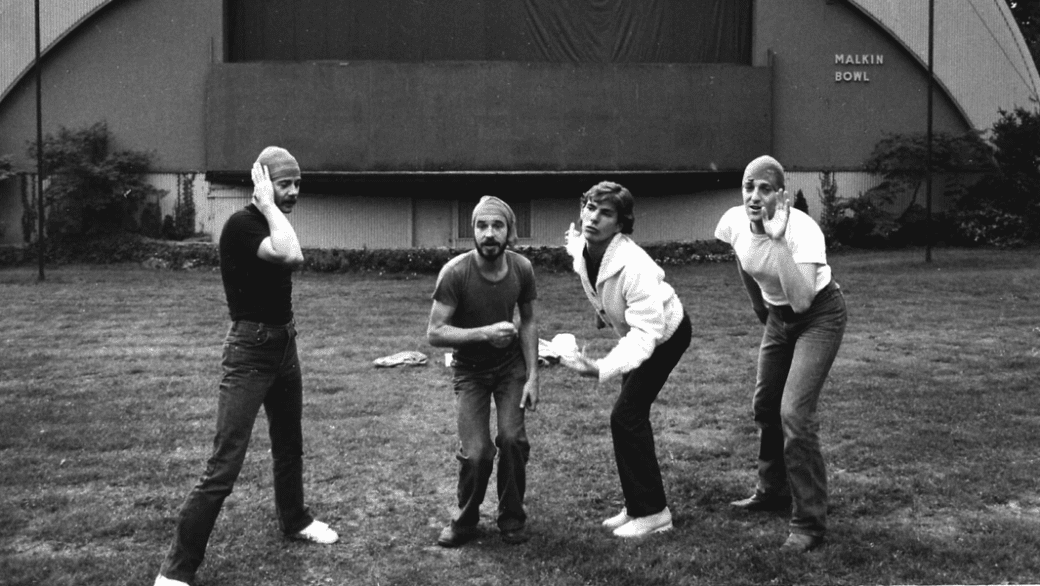Xtra Spark profiles current activism in our communities. This article stems from a partnership between Xtra Spark and VIVO Media Arts Centre in which we are supporting VIVO's fundraising campaign with targeted media coverage that gives our readership pathways to take action.
It can be easy to forget how different things once were for LGBT people in Canada. Back in the 1980s, Gayblevision, one of Canada’s first gay television shows, was at the forefront of documenting our emerging community, its culture and the challenges we faced.
(The introduction to Gayblevision, which aired in Vancouver from 1980-86./Gablevision)
Donald Larventz, one of the show’s two surviving original producers, remembers the early days of the show, recorded in a time when gay stories were only just beginning to be told and most political parties were “hostile to any legal protection against anti-homosexual prejudice — as the phrase went — in employment and housing.”
Larventz says the show’s general philosophy “was to reflect gays and lesbians — the expression we used — in Vancouver to other gays and lesbians and to anyone else who would watch.”
For Karen Knights, who is now in the process of digitizing hours of Gayblevision footage for Vancouver’s VIVO Media Arts Centre, one of the show’s most memorable moments is an interview recorded in March 1984 with Allan Hicox.
“Allan was Vancouver’s first out man with AIDS in Vancouver,” she explains. “In the nine months from his diagnosis to his death on Sept 26, 1984, at 21 years of age, Allan committed himself to raising awareness of the disease and providing support to fellow HIV patients.”
(Gayblevision’s interview with Allan Hicox, recorded in March 1984./Gayblevision)
Knights says she feels fortunate to help preserve the raw footage from that interview.
“Allan was not a professional educator or therapist,” she says, “he was an ordinary and very brave guy who chose to use his remaining time to help his community in an unselfish way.”
“AIDS in Vancouver, Canada and the US transformed gay men’s lives,” Larventz says, “and the program began to interview medical people, persons with AIDS and how they lived their lives — this was before AZT, never mind the drugs today that allow people to live normal lives.”
The interview with Hicox is just one of the many important records of LGBT life in Vancouver in the 1980s that Gayblevision captured.
Gayblevision was produced through Vancouver’s West End Cable 10 between 1980 and 1986. It documented the local lesbian and gay community — the issues, people and events that defined the early 1980s. It included interviews with community leaders and cultural icons, offered insight into the formation of the Pride movement (“We filmed the first Pride parade, small and brave compared to the extravaganza we’re used to these days,” Larventz says), gave voice to members of the Metropolitan Community Church, dabbled in satire, and provided extensive coverage of city council’s debate on a proclamation to support of Gay Unity Week.
(On Aug 4, 1980, Steve Mason asked Vancouver’s city council to proclaim Gay Unity Week. Gayblevision captured his speech to council, one city councillor’s support, and Mayor Jack Volrich’s startling reply./Gayblevision)
Gayblevision was no stranger to controversy. In 1984, a Vancouver Sun column noted that the show’s content, while popular, had received more complaints to the Canadian Radio-television and Telecommunications Commission (CRTC) than any other show on cable at that time.
“We did get our share of hate mail,” Larventz says, “generally written from a fundamentalist Christian point of view or just based on generalized disgust with the program.”
Preserving the Gayblevision Archive
Now, 30 years later, the Gayblevision archive is in danger of imminent degradation and loss. The analog tapes on which the episodes were recorded are nearing the natural end of their lives. Vancouver’s VIVO Media Arts Centre is working to ensure that Gayblevision’s 800 hours worth of content remains intact and accessible.
VIVO took ownership of Gayblevision’s archives from Larventz in the 1990s, and has been digitizing the tapes ever since for free online public access.
“So many aspects of queer history are transient,” says Knights, who is VIVO’s development coordinator. “Gayblevision only exists today because its founders had the foresight to gift their archives to VIVO.”
“This content powerfully and poignantly captures a specific time and place now long gone,” she continues. “How are today’s equivalent projects being preserved so that they might be available to future generations? Will only mainstream culture survive?”
“Capturing the history of an entire subculture is an immense technological and social challenge,” she says.
The Gayblevision Legacy Project
In 2015, VIVO receieved a grant from the BC History Digitization Program and the Irving K Barber Learning Centre at UBC to fund 50 percent of the total costs of digitizing Gayblevision, which is expected to cost $14,000. Since then, VIVO has raised roughly $3,600 through community donations.
Now, Daily Xtra has partnered with VIVO to raise the remaining $3,500 needed to bring the Gayblevision archive to life through a matching donations campaign.
When the project is complete, it will have created more than 80 hours of digital LGBT history to launch a free online Gayblevision archive.
The online archive will also include oral histories and additional written content.
“Xtra is proud to champion the preservation of a key aspect of queer history,” says Eric Wright, who heads the Social Sponsorship program at Daily Xtra. In support of this effort, Daily Xtra has committed to match every donation made to VIVO for this project, to a maximum of $1,500. Donations made through the link below will automatically be matched by Daily Xtra.


Gayblevision: Our Vision / Our Archive
Daily Xtra fundraiser for Gayblevision
May 15, 2016, starting at 6pm
Fountainhead Pub, 1025 Davie St, Vancouver
gayblevision.eventbrite.ca
Editor’s note, May 2, 2016: This story was amended to correctly attribute the quote on Allan Hicox to Karen Knights, and to add comments from Donald Larventz.
Editor’s note, March 17, 2017: This story was corrected to reflect that Gayblevision was one of Canada’s first LGBT TV shows.


 Why you can trust Xtra
Why you can trust Xtra